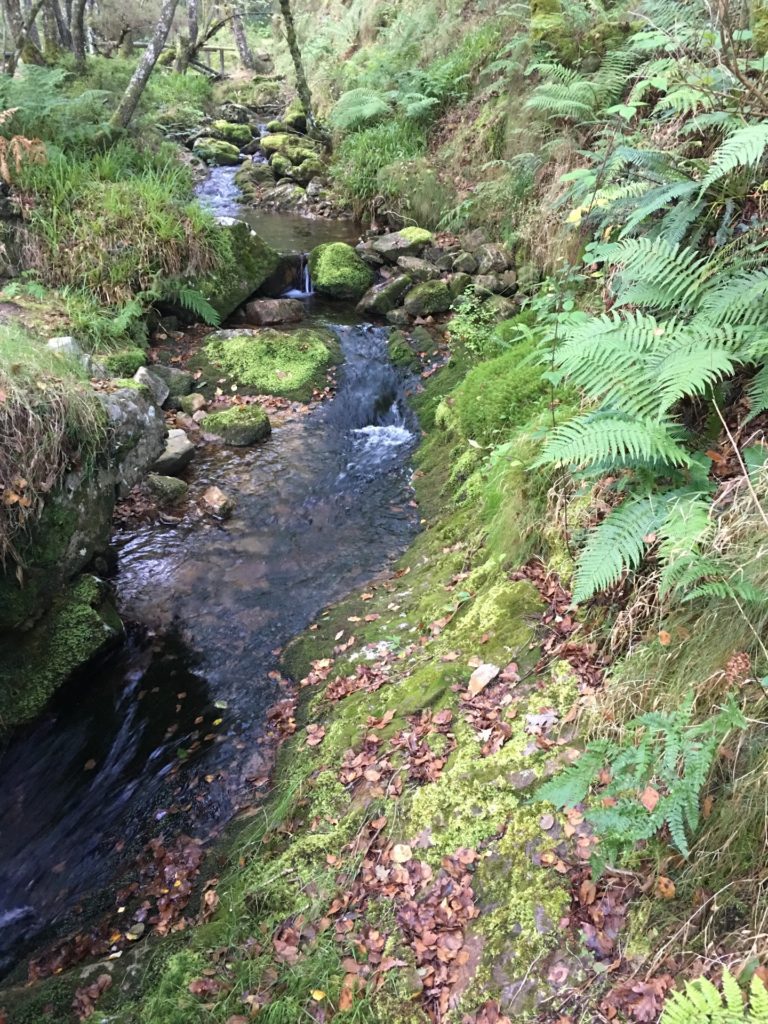 From the Camino: The day was beautiful, and the countryside was enchanting. The Camino wound its way through beautiful farmland, enclosed by rock walls, and sheltered from the winds by splendid and tall deciduous trees. The sunlight shone through the broad leaves, which were gently moved by the wind. It was idyllic, and the perfect kind of day for getting lost.
From the Camino: The day was beautiful, and the countryside was enchanting. The Camino wound its way through beautiful farmland, enclosed by rock walls, and sheltered from the winds by splendid and tall deciduous trees. The sunlight shone through the broad leaves, which were gently moved by the wind. It was idyllic, and the perfect kind of day for getting lost.
I passed through a small aldea, a settlement too small to even call it a village. I nearly jumped out of my skin when two large dogs, chained, I’m glad to say, did everything they could to make an end of me. I made it past them, safely, but a little puzzled. I had walked for a month by this point, and had never had an encounter with such angry dogs. It occurred to me that dogs living on the Camino should have been quite used to the passing of many strangers, so their behavior was unexpected. That was, of course, the first clue that I was no longer actually on the Camino at all. I didn’t have far to retrace my steps this time, but on other occasions, as I lost my way several times, I sometimes had miles to retrace.
Perhaps if I didn’t walk with my head in the clouds, this wouldn’t have happened as often. Each mistaken path, though, led me to beauty.
Even the bones of an apostle can get lost. When Sir Francis Drake raided the city of La Coruna, a mere 64 kilometers from Santiago, in 1589 it created quite a panic. Archbishop Juan de Sanclemente, of Santiago, hid the relics of St. James so very carefully that their location was lost to his devotees for three hundred years. This tragedy played important roles in diminishing the popularity of the pilgrimage to Santiago, along with the general secularizing effects of the Reformation.
It wasn’t until 1879 that a historian, Canon Antonio Lopez Ferreiro, from the cabildo of the Cathedral, found the apostle’s remains in an excavation of the cathedral.
Gen 2:15 – 4 Some had lost their way in a barren desert; found no path toward a city to live in. 5 They were hungry and thirsty; life was ebbing away. 6 In their distress they cried to the LORD, who rescued them in their peril, 7 guided them by a direct path so they reached a city to live in. 8 Let them thank the LORD for his mercy, wondrous deeds for the children of Adam. 9 For he satisfied the thirsty, filled the hungry with good things.
For reflection: Perhaps you have already gotten lost on the Camino? Almost everyone does, and in most cases things turn out, and there are lessons to be learned of patience, flexibility, openness and adventure.
So we don’t get where we intended by the time we had planned. Perhaps it’s as important to give up our plans as it is to give up everything we can’t carry in our backpacks. In the stripping process of this pilgrimage, we are also invited to consider how much temporal luggage we are carrying, how much security about times and places constrains us.
And, if indeed there are no accidents, it might be most important to ask ourselves what should we notice, what should we find, what can be made of the moments where we find ourselves not where we expected to be, and maybe not even knowing where we are? Is there a treasure here, in this unexpected place?